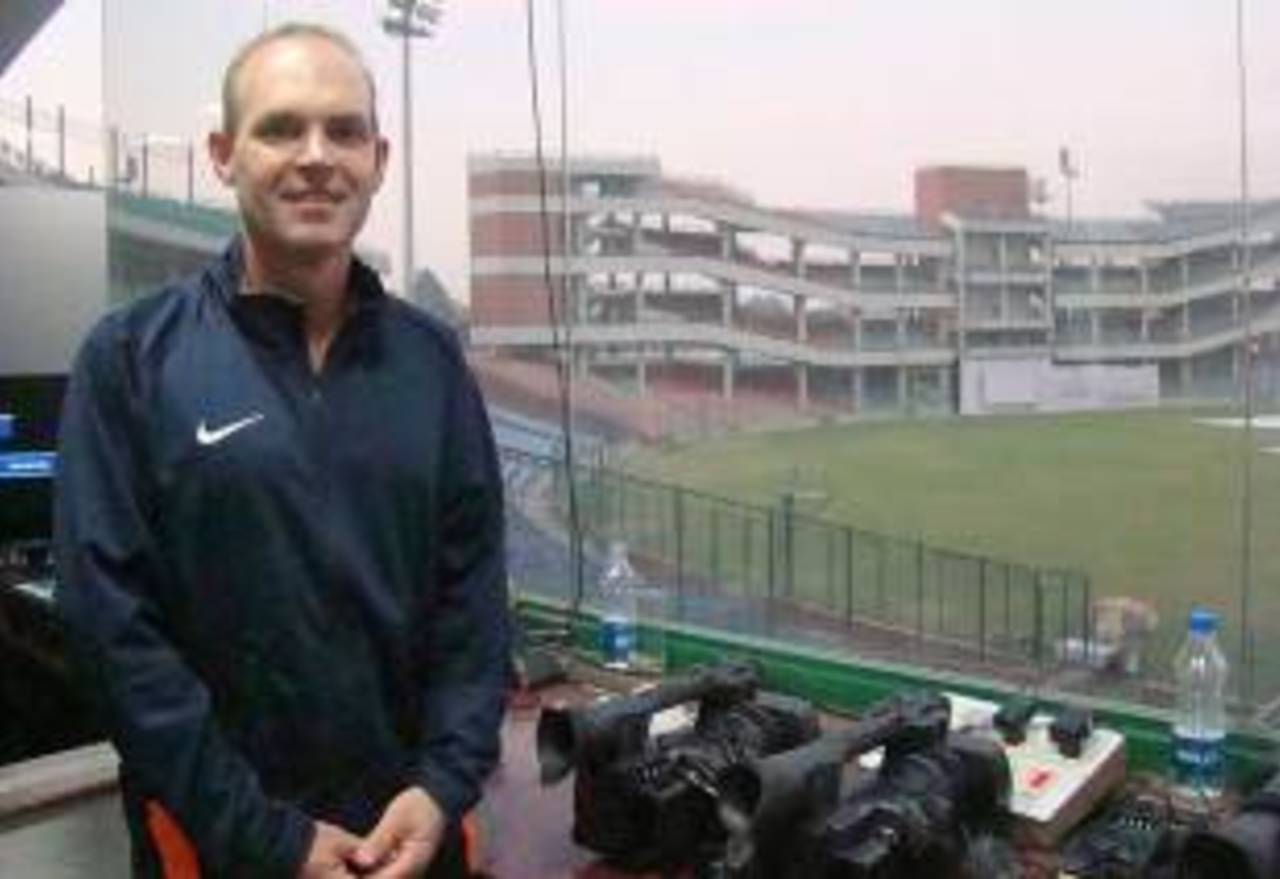Within the course of less than a month, Australian first-class umpire
Simon Fry could find himself following an itinerary that belongs to an episode of the Amazing Race: from Adelaide to Delhi, Meerut, Delhi and then back. His umpiring roster for the last five weeks of 2012 could include the Ranji Trophy, the Big Bash and the Sheffield Shield.
Fry has stood in two Ranji Trophy matches as part of an umpires' exchange programme between some Test-playing nations; during the first half of the Indo-Australian exchange umpire Vineet Kulkarni stood in two first-class matches in Australia. In early November, Kulkarni officiated in the Victoria v Western Australia match at the MCG and Tasmania v Queensland at Hobart. In Hobart, he partnered Fry, who is almost finished with a fortnight's stint in India.
The abiding thought from Fry's experience? "One thing I'll say is that I don't think cricket changes much no matter where it is played. Players still appeal for the same things, they still suffer the same disappointments on getting out and still celebrate getting wickets in the same manner."
In a sport where cultural differences can often be magnified, Fry, spending time in what he believes is really the "best seat in the house", has found common ground. Fry, 46, began umpiring in 1998-99 and stood in his first first-class match in 2002. His first time in India had him landing into Delhi and then being transported into the other world of Meerut and the
Ranji game between Uttar Pradesh and Karnataka. He's back in Delhi, officiating in the Delhi v Tamil Nadu game at the Kotla.
After two Ranji games he says, he found several distinctions: that the Indian domestic system tended to closely follow the ICC's playing conditions of 90 overs in a day when compared to Australia's 96. It gave captains in India more time to organise fields and make bowling changes, and also meant that domestic cricket in Australia was usually, "flowing a lot quicker."
Indian domestic players, Fry pointed out, had, "a strong sense of the code of conduct" which translated into good behavior on the field. While he didn't usually have problems with players over discipline issues, Fry said there was "perhaps a little more intensity in our Sheffield Shield." In umpire-speak that meant, he explained, "appealing might be a bit more aggressive back home."
That assessment certainly broke the stereotype of India being the centerpiece of a continent known for turning pitches, a tight knot of close-in fielders and vociferous bat-pad appeals. "Well I thought I would be seeing a lot more of that but I didn't," Fry said. "Even here
in Kotla we've seen very few overs with close-in fields. Perhaps tracks are now more batsmen-friendly." With India being beaten by England in the Mumbai Test over three days and a session, perhaps India's pitches are not the best topic of discussion at the moment.
The conditions he had officiated in, said Fry, were "ideal for first-class cricket." While he has mostly had the time to go from hotel to ground to hotel, Fry had the briefest of snapshots of India in a fortnight: a quick trip to the Taj Mahal, the hard lives of the urban poor and Meerut's overwhelming contrasts: its pristine green cricket ground, the warmth and hospitality of its cricket people and the world of dust elsewhere. His biggest adventure has been an auto-rickshaw ride around Delhi.
This has been Fry's first visit to India and if the next one happens around a cricket match again, he would like to learn a little of what is being said on a Ranji field. "I'm sure there's sledging out there but I don't understand a word of it. All I can figure out are words of encouragement," and with a big grin, offers the best-known example, "Shabash, shabash."
